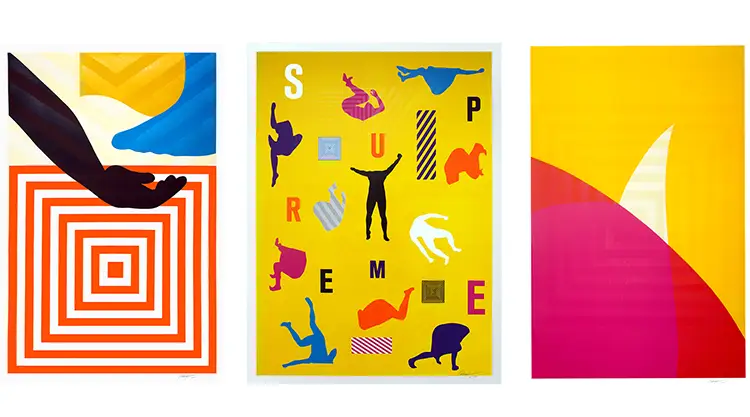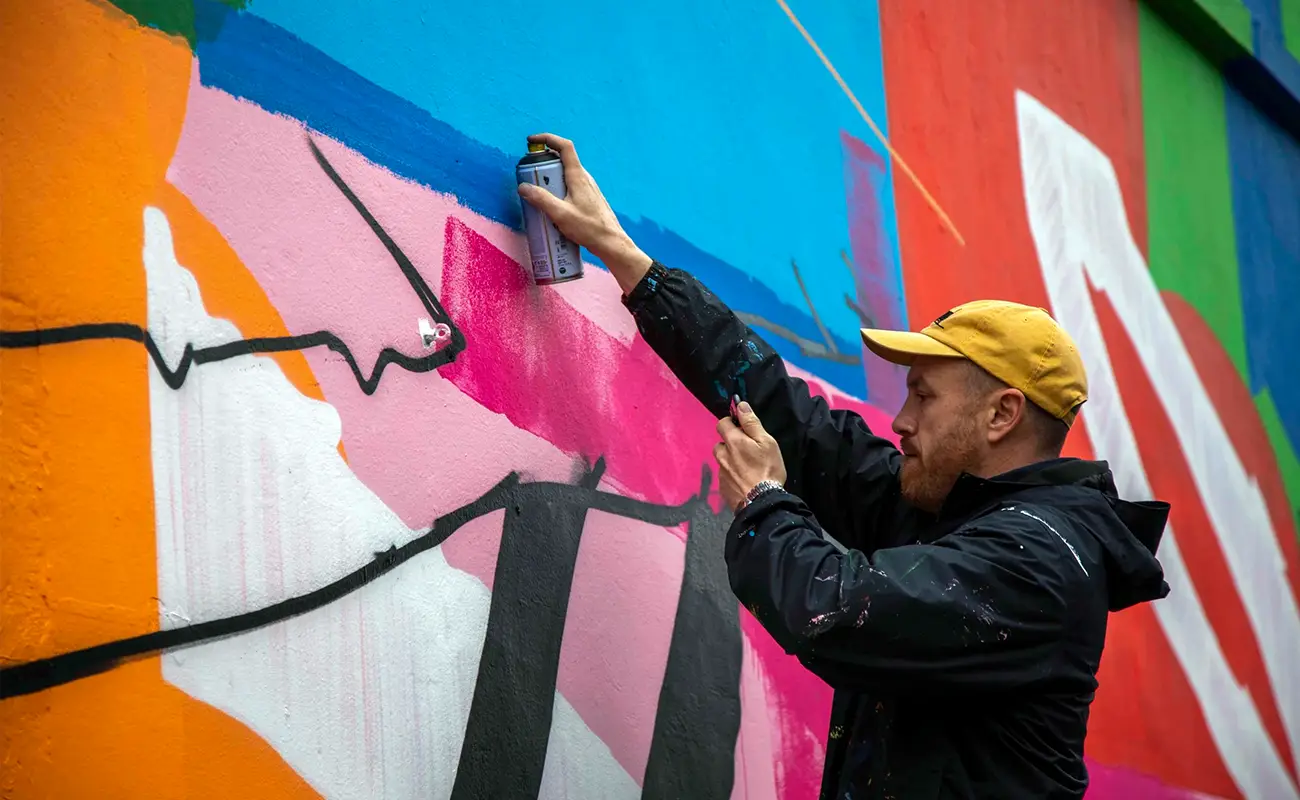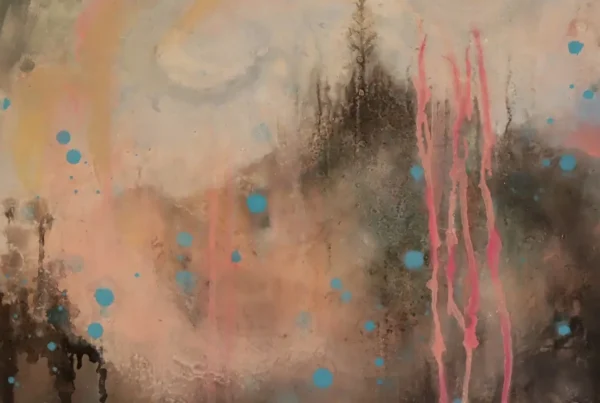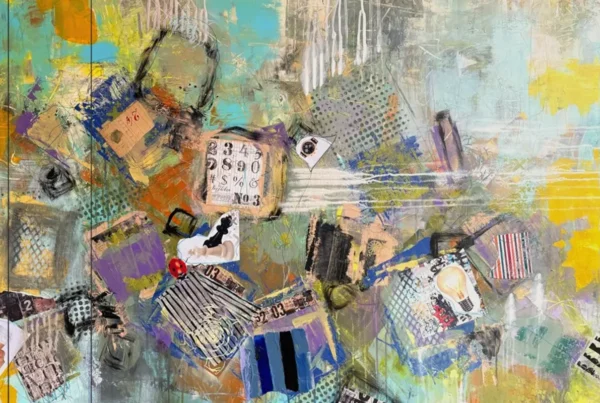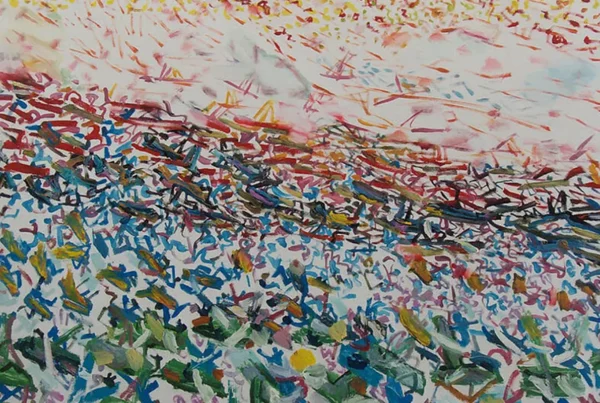Street Roots, Studio Heights
Dublin’s streets have long echoed with the visual rhythms of Maser, a multifaceted artist whose journey from graffiti to gallery has left a lasting imprint on the city and beyond. With over twenty years of experience, he has emerged as one of Ireland’s most influential contemporary artists, bridging the space between public expression and personal introspection. His vibrant murals, striking in scale and composition, mark both city walls and collective memory. But beyond the surface of his bold visuals lies a deeper narrative: a life marked by transformation, reflection, and connection. Maser’s work does not simply occupy space; it engages it, activating both public settings and private thought.
In conversation, Maser reflects on his evolution with quiet confidence. Early experimentation in street art laid the groundwork for a practice now spanning fine art, printmaking, and immersive installation. Yet the raw energy and immediacy of graffiti never truly left his work. His signature style fuses abstract forms with expressive colour palettes and crisp black outlines, revealing a tension between spontaneity and structure. This balance, born from his dual background in fine art and graphic design, gives his pieces a dynamic clarity that resonates across different audiences. Whether displayed in galleries or outdoors, his work seeks to communicate rather than alienate, inviting viewers to interpret freely and respond emotionally.
Maser’s belief in art as a communal act is woven through his initiatives. From large-scale public murals to collaborative community projects, he consistently champions accessibility in creative expression. His acclaimed 2016 Repeal mural became not just a visual icon but a rallying point during Ireland’s historic campaign to repeal the Eighth Amendment. Like many of his works, it was designed not to dictate a single message but to hold space for shared experiences. His philosophy is rooted in openness, evident in his Dublin 2 studio Atelier Now, a multidisciplinary hub for emerging artists and collective engagement. Whether offering a wall, a workshop, or a word of encouragement, Maser continues to challenge the boundaries of what art can do and where it belongs.
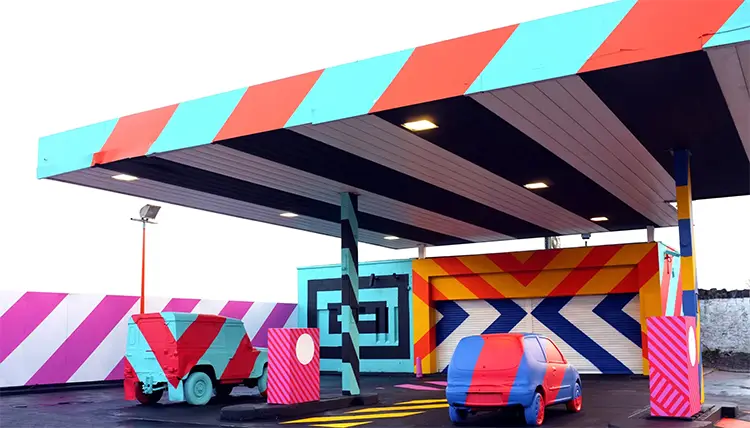
Maser: Painting the Personal into the Public
The journey from restless teenager to renowned artist has not been without its internal battles for Maser. While outward success might suggest certainty, his early years were marked by emotional struggle and an ongoing negotiation with identity. School proved a difficult environment, where dyslexia went undiagnosed and a lack of support undermined his confidence. For years, he carried the weight of being misread by a system that couldn’t accommodate his way of thinking. Art offered a quiet refuge—a means of expression that didn’t require explanation. He remembers saving up from a paper round just to buy paint for his first mural, an early sign of the drive that would define his later career.
Beneath the surface of his work lies a conversation about self-awareness and healing. Maser openly discusses how a lack of emotional education in his youth led to the adoption of a hardened persona—what he describes as “the angry young man.” This internal conflict spilled into unhealthy lifestyle choices, leading him down a path of self-destruction. A turning point came when he began to confront that inner voice and develop a more compassionate relationship with himself. He credits this shift with helping rebuild his connection to his mother, a relationship that grew stronger as he learned to extend the same kindness outward. His ability to articulate this emotional evolution adds a rare depth to his art, one that invites viewers to consider their own stories.
Fatherhood and personal growth have reoriented Maser’s life in profound ways. Becoming a parent sparked a reassessment of values and a renewed dedication to balance and presence. His decision to return to Dublin after time abroad was driven by this clarity—a desire to build a space where family, creativity, and wellness could coexist. Atelier Now reflects this vision: part gallery, part sanctuary, part workshop. It’s not only where he paints, but where he meditates, connects, and mentors. In his studio, art is not separate from life, but a reflection of it. Through colour, shape, and collaboration, Maser continues to translate deeply personal experiences into works that speak to collective truths.
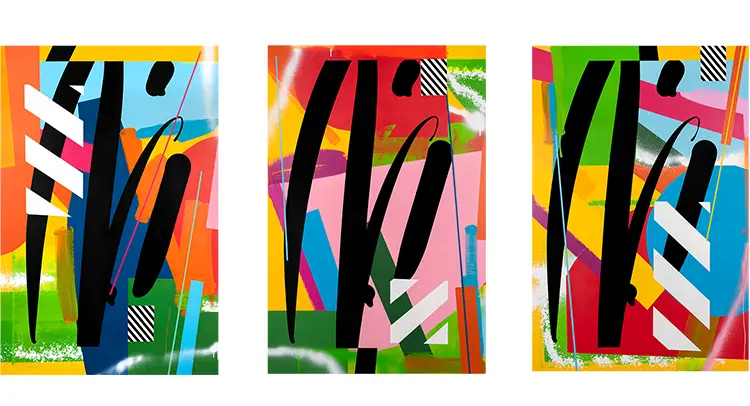
Endurance, Emotion, Expression
Creative energy has never been something Maser takes for granted. Years of managing depression and chronic stress have taught him that inspiration is deeply tied to wellbeing. His day often begins at dawn, driven by a racing mind eager to capture the spark of a new idea. But alongside the rush, he’s learned the value of slowing down. Meditation, journaling, and physical activity form the backbone of his mental routine. Discovering Transcendental Meditation at a small centre near his studio proved transformative, reconnecting him with his inner rhythm after a period when medication had dulled his creative instincts. For Maser, nurturing the flow of ideas is as much about self-care as it is about practice.
Movement, both literal and metaphorical, plays a key role in how he sustains his momentum. A love for endurance challenges—cycling across Ireland, walking coast to coast—mirrors his approach to artmaking. Each long-distance journey echoes the persistence required in his studio: the repetition, the uncertainty, the grit. These physical feats are not about conquest, but calibration. They offer clarity, space, and the quiet confidence that comes from knowing he can push through. Maser views this endurance as a metaphor for resilience, both personal and professional. His practice thrives not only on inspiration but on his ability to keep showing up, especially when the process feels uncertain.
Maser’s musical choices further reflect his sensitivity to atmosphere. When working, he prefers abstract soundscapes—artists like Sigur Rós and Björk—whose frequencies don’t interfere with the flow of thought. This careful curation of his environment extends to his creative rituals, from the clothes he paints in to the pace of his weekends. He favours open calendars, long hikes, cold swims, and quiet time with family. These deliberate choices serve as grounding forces, enabling him to face setbacks with perspective. In his own words, he doesn’t get too high on success or too low on disappointment. Practising gratitude helps him remain focused, resilient, and present—qualities that are increasingly embedded into his work.
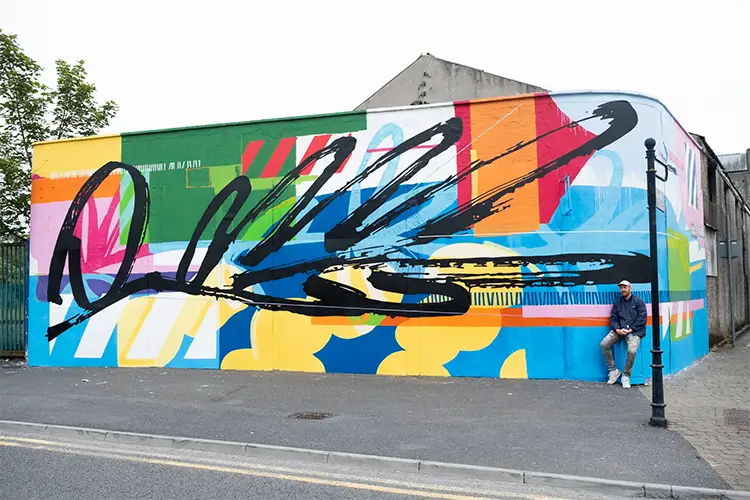
Maser: Conversations Beyond the Canvas
Beyond the studio walls, Maser is deeply engaged in reshaping how men experience emotional connection. The Dublin Boys Club, which he co-founded with his friend Conor Creighton, is a space intentionally designed to counter traditional norms around masculinity. Inspired by a similar initiative in Berlin, the group encourages men to meet without alcohol, without performative banter, and without the compulsion to “fix” each other’s problems. Whether sitting in a circle or hiking through the hills, the goal is simple: honest conversation. For Maser, these gatherings are not just social—they’re vital to mental and emotional wellbeing. They echo his broader belief that creativity and community are closely intertwined.
His reflections on grief offer another layer to this commitment. The suicide of a close friend at age 19 left a lasting impact, one that he only began to fully understand years later. That loss, and the emotional numbness that followed, shaped much of his young adulthood. Through art and mentoring, he now seeks to honour his friend’s memory by creating spaces of support for others. Atelier Now’s programmes for emerging artists are grounded in this ethos, offering guidance that goes beyond technique. In providing access, support, and space to explore, he enables the next generation of artists to express themselves with confidence, not in spite of their emotional landscape, but because of it.
Maser’s vision of masculinity is one that makes room for compassion, vulnerability, and creativity. Observing the emotional fluency his wife shares with her friends, he sees the gap many men still face in forming meaningful, judgment-free bonds. Through initiatives like the Dublin Boys Club and his candid public interviews, he is working to close that gap. He challenges the idea that emotional openness is incompatible with strength, and instead positions it as essential to growth. Whether through paint, dialogue, or presence, Maser continues to build bridges—between people, ideas, and identities—offering an expansive view of what art, and being an artist, can truly mean.
